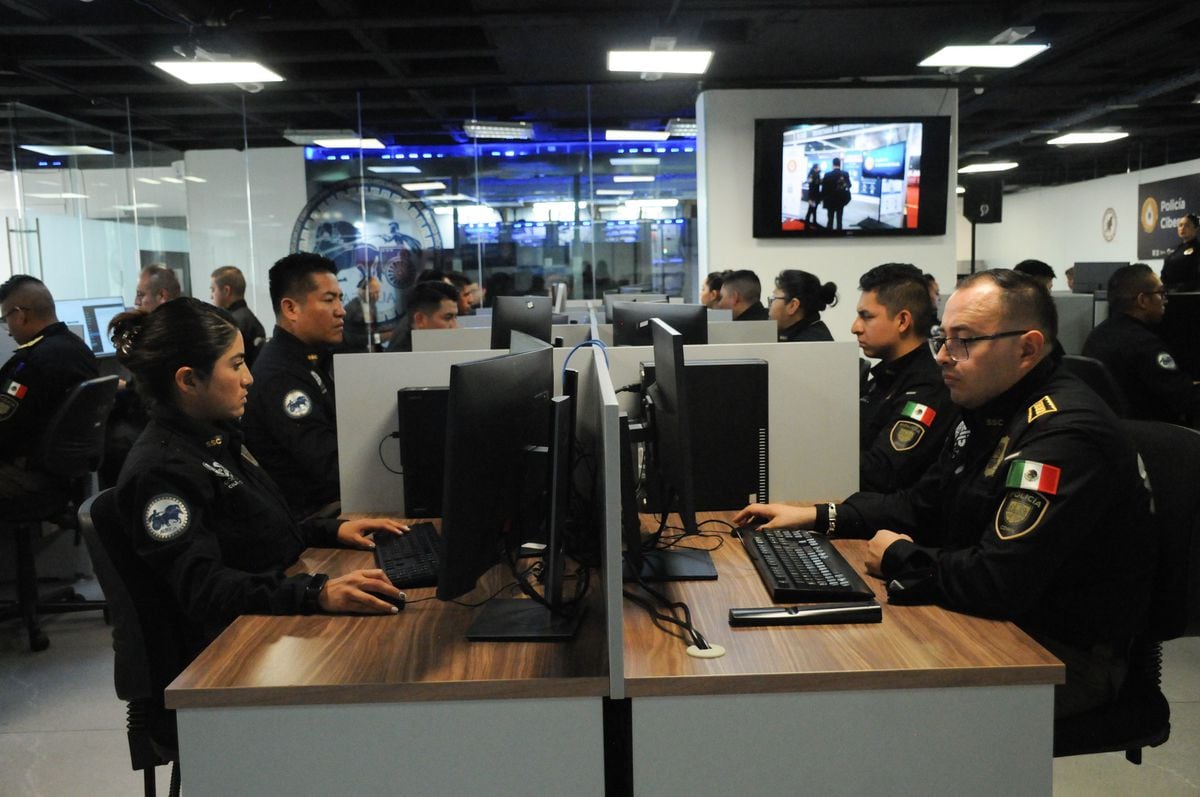Command center of the Cybernetic Police in Mexico City, which issued an alert against carrying out the challenge. Daniel Augusto (Cuartoscuro)
At the beginning of the year, the Mexico City Cyber Police issued an alert for the risk of carrying out the "clonazepam challenge", a challenge based on consuming the anxiolytic to try to fight its effects while staying awake and which has caused poisoning to more than 37 children since the beginning of January in Mexico.
The challenge has been developed among minors who are in a stage of "personality development", according to the president of Tejiendo Redes Infancia, Juan Martín Pérez.
The president of the organization says that in this process there are three searches: that of identity, that of belonging and that of support networks.
“They need to have an identity based on certain things;
and they need to belong, to feel part of something because they are building their social networks, ”he summarizes during the telephone interview.
He is skeptical of the challenge, he does not believe that it has such a representative effect in reality due to the absence of videos related to the challenge on the networks and the lack of media investigations on the subject.
The Cyber Police created the alarm after detecting 10 videos made with the challenge, which they later reported to Tiktok, indicates the coordinator of the authority's prevention area, Sandra García.
The Secretary of Citizen Security (SSC), he explains, opened an investigation folder on the subject, to which should be added those initiated by the capital's Prosecutor's Office, which until the closing of this publication has not responded to this newspaper.
García indicates that there are already detainees for the sale of these anxiolytics illegally, although she does not specify the exact number because the investigation "is still open."
Despite the lack of videos on the networks, Tiktok has given "worrying" signs of its effect.
The
influencer marketing
director of the agency Another, Mayra Alcántara, says that the new generations have begun to use the search engine of this platform instead of Google.
Among her searches, she finds some alarming ones that, according to her account, "continue to feed the topic."
"With what other medicine can you feel that? With how many tablets do you go to the hospital? There are even answers in which they assure that four is the correct number," Alcántara exemplifies.
According to the researcher at the Department of Psychobiology and Neurosciences of the Faculty of Psychology of the National Autonomous University of Mexico (UNAM), clonazepam is a medication prescribed mainly for people with epileptic seizures, although it also has other purposes, such as solve sleep problems.
The effects, Muñoz-Torres says, can vary depending on variables such as weight, age, diet or sex.
The researcher considers that the anxiolytic is dangerous when mixed with other medications, since it can even lead to death, although she affirms that the lethal dose "is very far away."
Although the Cyber Police calls the challenge "viral", the absence of videos contradicts the idea.
“This challenge was not started by
influencers
, nor by people who have millions of followers.
It was people who one day decided to do it.
And sometimes it happens that these people delete the videos or have a closed profile, which their friends get to”, says the director.
Despite this lack of samples, the search figures reflect its effect: the hashtag “clonazepam” (
#clonazepam
) has 90.1 million views;
and that of “reto clonazepam” (
#
retoclonazepam
), 726,000, numbers that Alcántara refers to as “super strong”.
Alcántara agrees with Juan Martín Pérez in the lack of "digital education".
“As they say in Mexico, nobody educated us to save, nobody educated us to be financed.
In the same way, parents (of generations such as the
millennial
or the
boomer
) did not educate us to have a correct behavior in social networks ”, he says.
In Mexico, seven out of 10 people have access to the internet, according to the latest data from the National Institute of Statistics and Geography (Inegi), for 2021. And on Tiktok, the social network with the most presence of generation Z (those born between the late from the 1990s and early 2000s), one in four users is under the age of 20.
Pérez explains that adults, who are also referred to as “digital migrants”, “are usually afraid of the internet because they don't control it”.
For the president of the organization, the decision of the minors to carry out the "clonazepam challenge" is part of the usual socialization, and he considers that the networks "are an extension of reality."
He affirms that at this stage, children and adolescents try to share something that supposes "a break", and they pay more attention to their generational environment than to adults.
“That is why at the time, consuming tobacco or marijuana, sharing something that is disruptive is a part of the socialization that everyone does, each one at their time and in their context,” he concludes.
subscribe here
to the EL PAÍS México
newsletter
and receive all the key information on current affairs in this country

